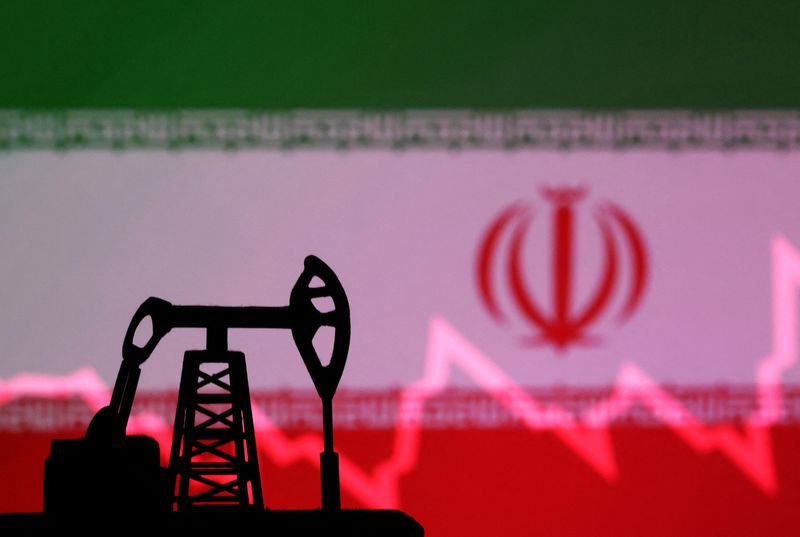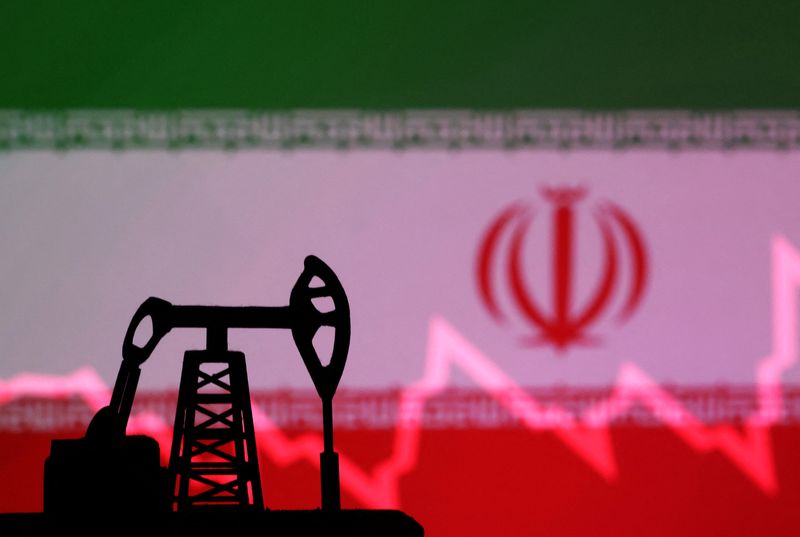Commodities
Oil steadies after death of Iran’s president, Saudi king’s ill health

By Natalie Grover and Deep Kaushik Vakil
LONDON (Reuters) -Oil prices held steady on Monday amid political uncertainty in major producing countries after Iran’s president died in a helicopter crash and Saudi Arabia’s crown prince deferred a trip to Japan on account of his father, the king’s, health.
was down 35 cents at $83.63 a barrel by 1205 GMT. The U.S. West Texas Intermediate (WTI) June contract, set to expire on Tuesday, edged 43 cents lower to $79.63 a barrel. The more-active July contract was down 38 cents at $79.2.
Iranian President Ebrahim Raisi, a hardliner long seen as a potential successor to Supreme Leader Ayatollah Ali Khamenei, was killed in a helicopter crash in mountainous terrain near the Azerbaijan border, officials and state media said on Monday.
Iranian oil policy should be unaffected by the president’s sudden death, as Khamenei holds ultimate power with a final say on all state matters.
Separately, Saudi Arabian Crown Prince Mohammed bin Salman postponed his visit to Japan, scheduled to begin on Monday, because of a health issue with his father King Salman, said Japan’s Chief Cabinet Secretary Yoshimasa Hayashi.
Saul Kavonic, an energy analyst at MST Marquee, said the market is already accustomed to Crown Prince Mohammed Bin Salman’s leadership in the energy sector.
“Continuity in Saudi strategy is expected regardless of this health issue,” he said.
In Europe, another Russian energy facility was hit. The Slavyansk oil refinery, located in the Krasnodar region, was damaged after a weekend drone attack, state-run TASS reported on Monday, citing a company security official.
Russia has reported a rise in Ukrainian attacks on its territory since its forces opened a new front in northeastern Ukraine’s Kharkiv region earlier this month.
“From here, we expect overall market fundamentals to improve and see similar inventory draws and price action as observed last summer, with Brent oil moving $10 higher from current levels by September,” JPMorgan analysts wrote in a note late Sunday.

The Organization of the Petroleum Exporting Countries and allies, together known as OPEC+, are scheduled to meet on June 1.
“The market also appears increasingly numb to developments on the geopolitical front, likely due to the large amount of spare capacity OPEC is sitting on,” said Warren Patterson, head of commodities strategy at ING.
Commodities
Oil prices rise; U.S. crude inventories plunge, Russia-Ukraine truce eyed
Commodities
India’s Reliance to stop buying Venezuelan oil over US tariffs, sources say
Commodities
Oil prices climb on Venezuela supply worries

 Forex3 years ago
Forex3 years agoForex Today: the dollar is gaining strength amid gloomy sentiment at the start of the Fed’s week

 Forex3 years ago
Forex3 years agoUnbiased review of Pocket Option broker

 Forex3 years ago
Forex3 years agoDollar to pound sterling exchange rate today: Pound plummeted to its lowest since 1985

 Forex3 years ago
Forex3 years agoHow is the Australian dollar doing today?

 Cryptocurrency3 years ago
Cryptocurrency3 years agoWhat happened in the crypto market – current events today

 World3 years ago
World3 years agoWhy are modern video games an art form?

 Commodities3 years ago
Commodities3 years agoCopper continues to fall in price on expectations of lower demand in China

 Economy3 years ago
Economy3 years agoCrude oil tankers double in price due to EU anti-Russian sanctions























